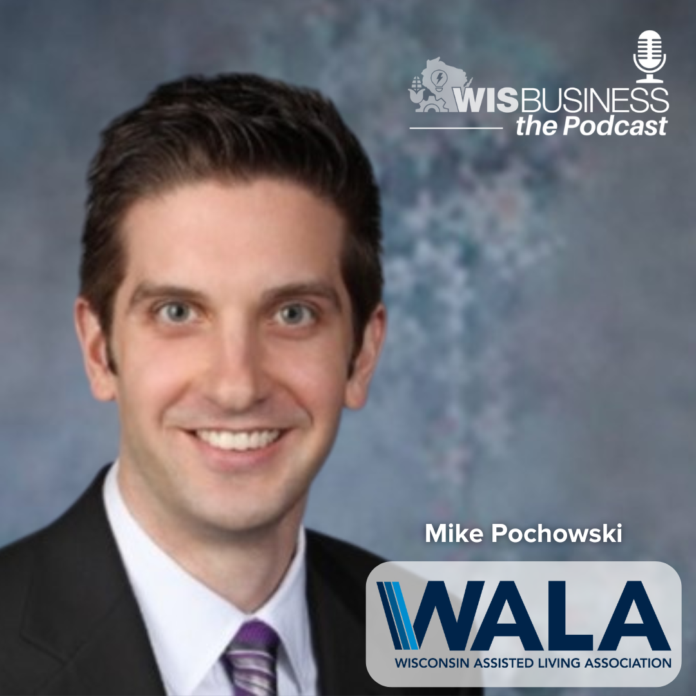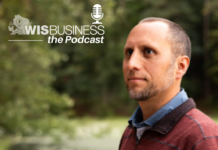This week’s episode of “WisBusiness: the Podcast” is with returning guest Mike Pochowski, president and CEO of the Wisconsin Assisted Living Association.
The discussion centers on legislation being supported by the association, which represents about 2,000 assisted living facilities in Wisconsin. Pochowski argues the bill would improve transparency for referral agencies, which help connect families with long-term care options.
“We’ve been hearing a lot of concerns in terms of, are there ways to enhance consumer transparency with organizations such as these, just to ensure everyone is on the same page and we all know the effect of what these contracts entail, who’s paying for what,” he said.
Under SB 262 and AB 255, an agency that refers a prospective resident to an assisted living facility would be required to disclose any relationship it has with that facility and any fee the facility will pay to the referral agency. Referral agencies would also have to disclose that they only list assisted living facilities with which they have a contractual relationship, according to the Legislative Reference Bureau.
The legislation includes other provisions related to residents’ ability to terminate services provided by these agencies, how fees are set and collected, as well as financial penalties for violators.
Pochowski shares insights on the contracts between assisted living facilities and referral agencies, noting some require facilities to cover part of the cost of initial rent and care, ranging up to $12,000 per referral in some cases.
“So there’s a huge fee associated with this, that the consumer probably doesn’t know because it’s being advertised as a free service,” he said.
The association is targeting this policy issue after other states have enacted similar legislation, according to Pochowski, including Arizona, Washington, Colorado and Texas.
“We’ve just been hearing a lot of this from our membership, but also from the residents and families who are moving into these facilities, just lots of confusion, lots of questions that come up from this,” he said.
Listen to the podcast below, sponsored by UW-Madison:







